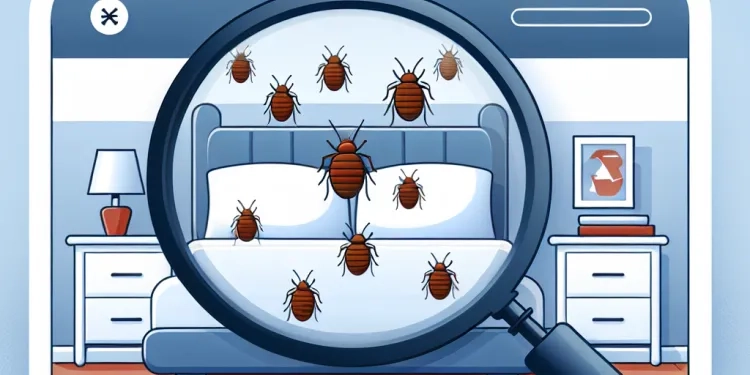
Find Help
More Items From Ergsy search
-
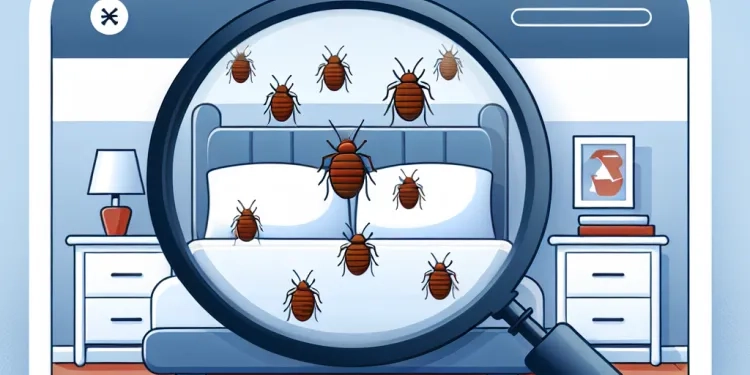
What are the signs of a bed bug infestation?
Relevance: 100%
-
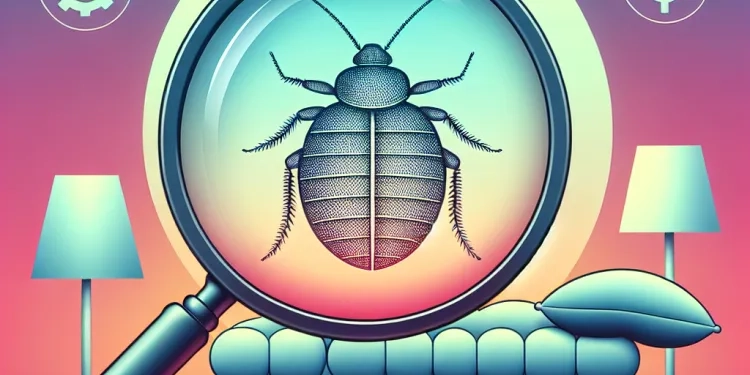
What are bed bugs?
Relevance: 76%
-

Bed Bugs / bedbugs
Relevance: 74%
-
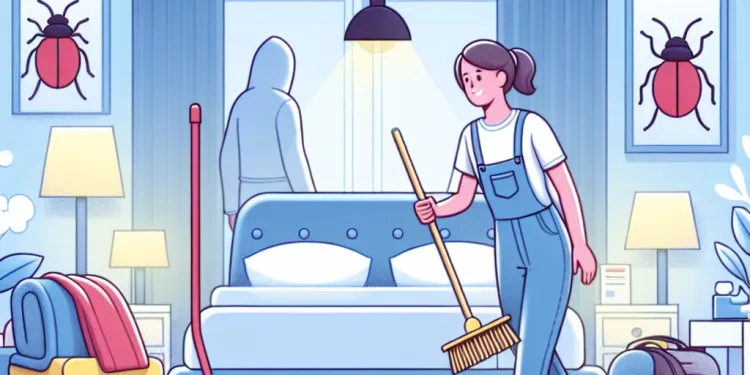
Are bed bugs dangerous?
Relevance: 73%
-
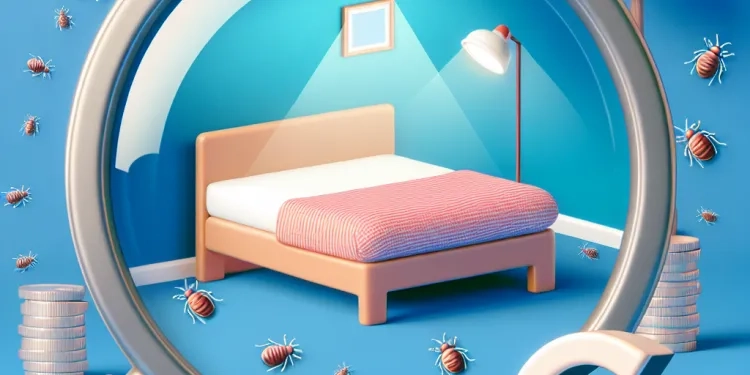
Do bed bugs only live in beds?
Relevance: 71%
-

Why are bed bugs so difficult to eliminate?
Relevance: 70%
-
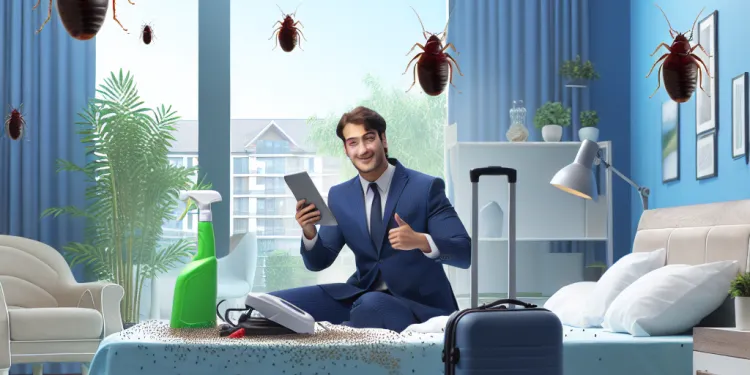
What should I do if I find bed bugs in my house?
Relevance: 69%
-
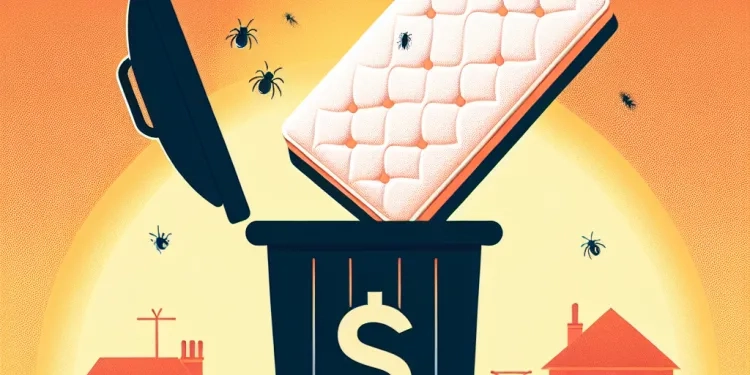
Will disposing of my mattress get rid of bed bugs?
Relevance: 68%
-

How can I prevent bringing bed bugs into my home?
Relevance: 67%
-
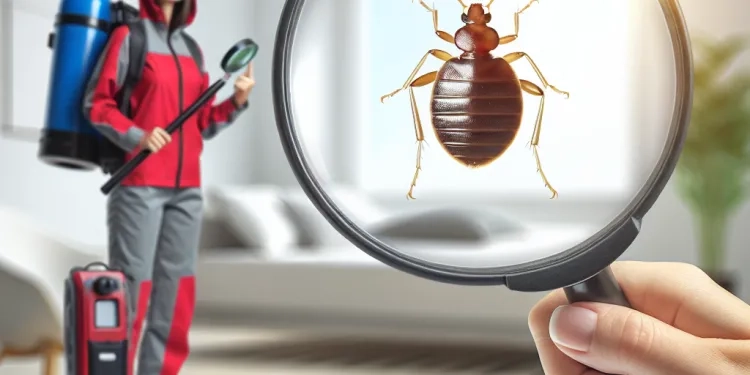
Can I get rid of bed bugs myself?
Relevance: 67%
-
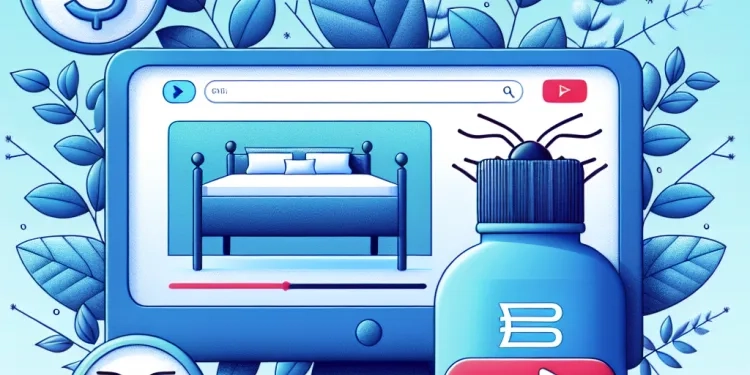
Are there any natural remedies for bed bugs?
Relevance: 66%
-

How do bed bugs enter my home?
Relevance: 65%
-

What items should I wash if I have bed bugs?
Relevance: 62%
-
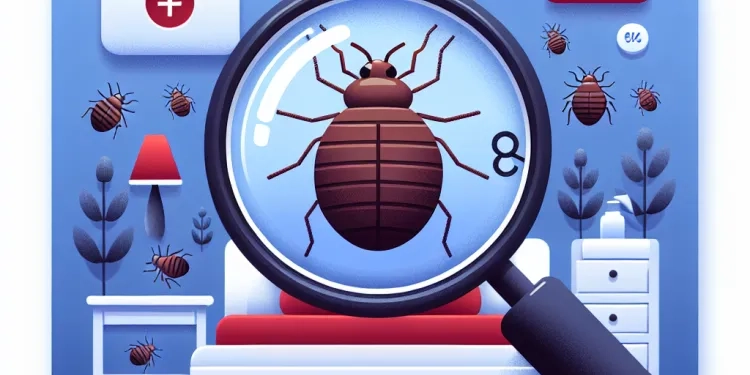
How can I tell if bites are from bed bugs?
Relevance: 58%
-
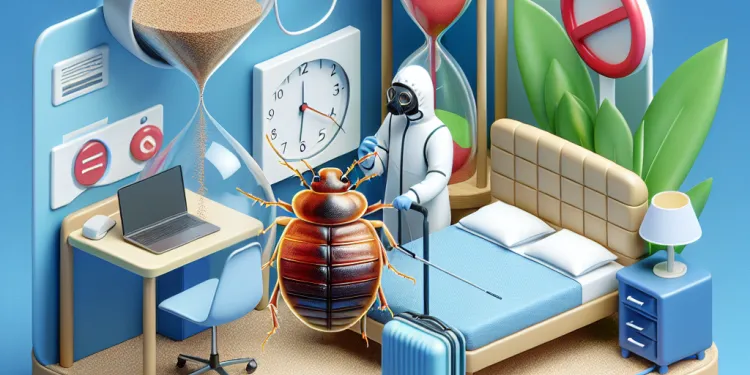
How long does a bed bug extermination process take?
Relevance: 57%
-
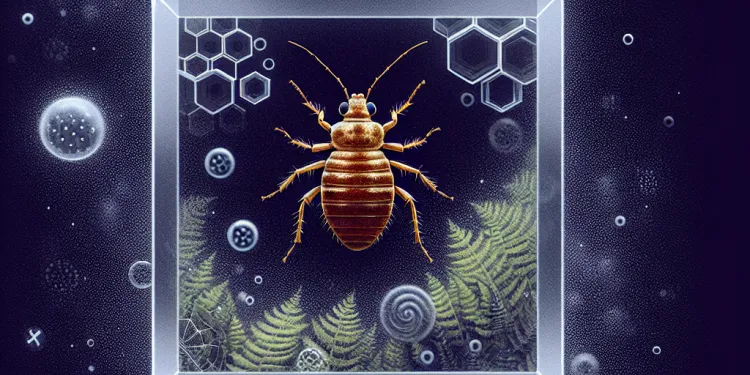
How much does professional bed bug extermination cost in the UK?
Relevance: 57%
-

What are the symptoms of a screw worm infestation?
Relevance: 33%
-
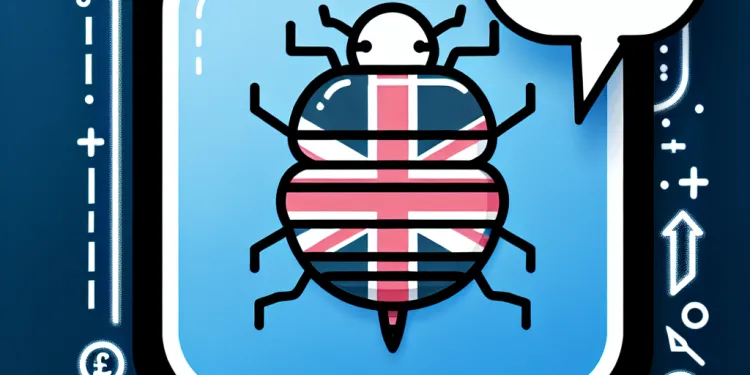
Can screw worm infestations be prevented?
Relevance: 31%
-

How do screw worms infest their hosts?
Relevance: 31%
-

How are screw worm infestations treated?
Relevance: 30%
-
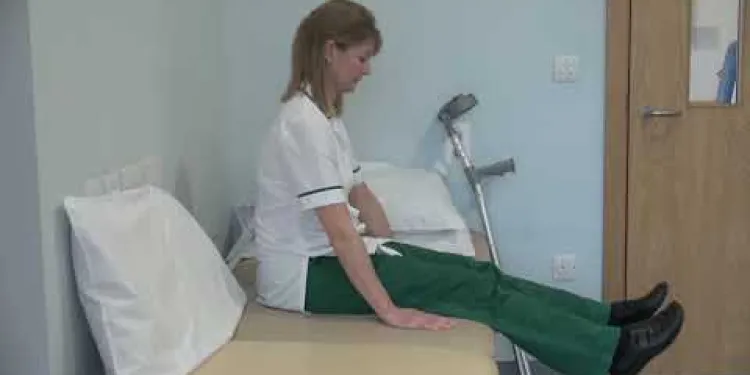
Hip replacement - getting into bed
Relevance: 26%
-

How long do screw worm larvae typically infest a host?
Relevance: 25%
-
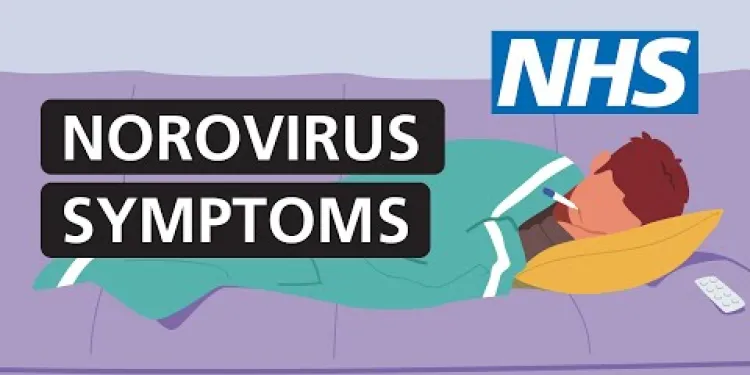
What is norovirus? (Diarrhoea and vomiting bug) | NHS
Relevance: 24%
-
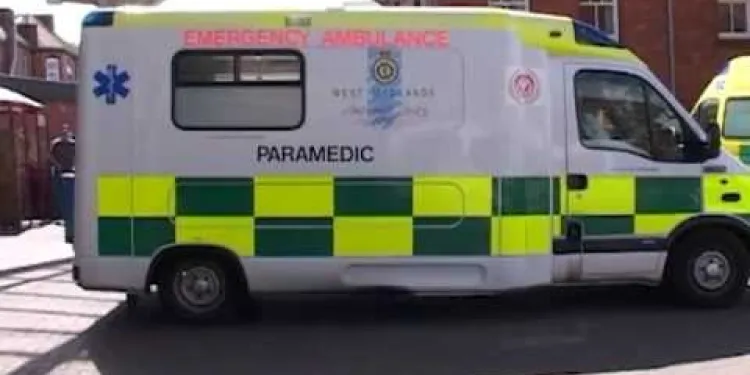
MRSA Bug
Relevance: 22%
-
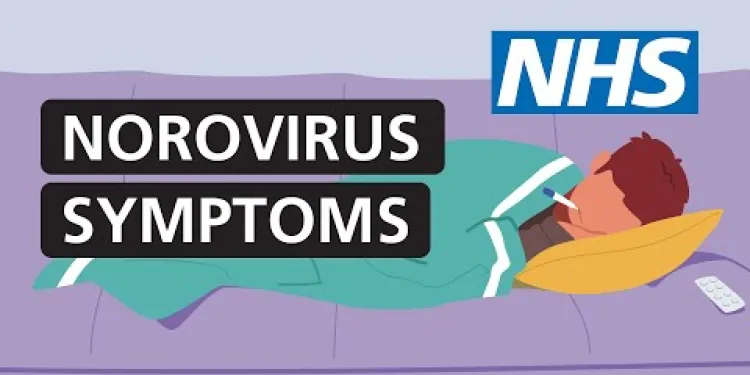
What is norovirus? (Diarrhoea and vomiting bug) | NHS
Relevance: 21%
-

How does screen time before bed specifically affect adolescents?
Relevance: 21%
-

Is scabies contagious?
Relevance: 19%
-

What are the signs of autism?
Relevance: 18%
-

What are the signs of meningitis in infants?
Relevance: 17%
-
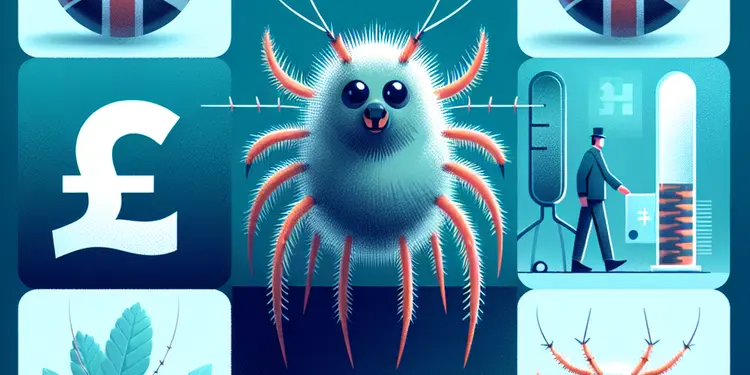
How long can mites live without a human host?
Relevance: 17%
-

Can nits survive on furniture or clothing?
Relevance: 17%
-

What are the signs of heat exhaustion?
Relevance: 17%
-

How do you sign up for the Postcode Lottery?
Relevance: 17%
-

Can scabies be treated over-the-counter?
Relevance: 16%
-

What are the signs of honour based abuse?
Relevance: 16%
-

5 Warning Signs of Online Grooming
Relevance: 16%
-

Leukaemia: What are the signs and symptoms? | NHS
Relevance: 16%
-

How should household items be cleaned after a scabies infection?
Relevance: 16%
-

What are the signs that my relationship is making me depressed?
Relevance: 16%
-
What are the early warning signs of an eating disorder?
Relevance: 16%
Signs of a Bed Bug Infestation
In the United Kingdom, bed bug infestations can occur in any household, regardless of cleanliness. Understanding the signs of an infestation can help you address the problem before it worsens. Bed bugs are small, elusive creatures that typically come out at night to feed. While they can be difficult to spot, several tell-tale signs can indicate their presence.
Physical Evidence of Bed Bugs
One of the most definitive signs of a bed bug infestation is finding the insects themselves. Bed bugs are small, reddish-brown insects about the size of an apple seed. They prefer to hide in cracks and crevices near sleeping areas, such as mattress seams, bed frames, and even behind wallpaper or under skirting boards. Inspecting these areas closely with a flashlight can sometimes reveal live bugs.
Blood Stains and Fecal Matter
After feeding, bed bugs often leave behind small blood stains on sheets, mattresses, or pillowcases. These stains can appear as tiny rust-coloured spots. Bed bugs also excrete fecal matter, which looks like small black or dark brown spots, often found along mattress seams and in bed frames. This waste material can emit a strong, unpleasant, musty odour, which is another possible indicator of their presence.
Bites and Skin Reactions
Another common sign of a bed bug infestation is the presence of bites on skin. Bed bug bites are often grouped together in small clusters or rows and can appear as red, itchy welts. However, not everyone reacts to bed bug bites, so their absence does not necessarily mean you are free of bed bugs.
Unusual Odours
A large infestation might result in a noticeable smell. Bed bugs emit pheromones, which can produce a sweet, musty odour akin to overripe raspberries if the infestation is significant. If you detect an unusual smell in your bedroom, it’s worth investigating further.
Shed Skins and Eggs
Bed bugs molt five times before reaching maturity, shedding their skins each time. Looking for these old exoskeletons, which are pale in colour, can help identify an infestation. Additionally, bed bug eggs are tiny, about 1mm, and are white or translucent, making them difficult to spot unless in large clusters.
If you suspect a bed bug infestation, it’s crucial to act swiftly to minimise the issue's impact. Professional pest control can effectively eliminate bed bugs and prevent future problems.
Signs of a Bed Bug Infestation
Bed bugs are small, elusive pests that can cause significant discomfort and can be challenging to eradicate once they have established a home. Early detection of an infestation is crucial to managing and removing them effectively. Below are some key signs to look out for if you suspect a bed bug infestation in your home.
Physical Bites and Skin Reactions
One of the first indicators of a bed bug infestation is unexplained bites on your skin. These are often small, red, and itchy, resembling mosquito or flea bites. They typically appear in rows or clusters on exposed areas, such as the arms, legs, and neck. However, not everyone reacts to bed bug bites, so it’s essential to look for other signs as well.
Presence of Live Bugs
Bed bugs are about the size of an apple seed, oval-shaped, and reddish-brown in colour. Seeing them in the seams of your mattress, bed frames, or nearby furniture is a direct indication of an infestation. While they are primarily nocturnal, heavy infestations might result in bugs visible during the day.
Blood Stains and Fecal Marks
Look for small rusty or reddish stains on bed sheets or mattresses, which are often a result of bed bugs being crushed. Additionally, you might notice dark brown or black marks, which are bed bug faecal droppings, on your bedding or furniture.
Bed Bug Exoskeletons
As bed bugs grow, they shed their exoskeletons. These translucent shed skins are often found near their hiding places, such as mattress seams, bed frames, or beneath loose wallpaper.
Unusual Musty Odour
A heavy bed bug infestation may produce a musty, sweet odour due to the pheromones released by the bugs. If you notice a distinct, unpleasant smell in your bedroom or other parts of your home, this could indicate a significant infestation.
Recognising these signs early can help in taking quick actions to eradicate bed bugs, thus reducing the chances of a widespread infestation and excessive damage. If you believe you have a bed bug problem, consider consulting a professional pest control service in the UK to assess and deal with the infestation effectively.
Identifying Bed Bug Infestations in the United Kingdom
Bed bugs are notorious pests that can cause discomfort and stress in households across the United Kingdom. Early detection is crucial in managing infestations effectively. Here are some common signs that could indicate a bed bug problem in your home.
Visible Bed Bugs and Their Shedding
One of the most obvious indicators of an infestation is seeing the bed bugs themselves. Adult bed bugs are small, brownish insects approximately 5mm in size. You might also notice their shed skins, as they molt several times during their lifecycle. These exoskeletons can be found around mattress seams, bed frames, or any crevice where they might hide.
Blood Stains and Dark Spots
After feeding, bed bugs tend to leave behind small blood stains on sheets or pillowcases. These stains are typically rusty or reddish and are often found near the edges or corners of the bed. Additionally, you might find dark spots, which are actually bed bug excrement. These spots are about the size of a pinhead and can appear on mattresses, bedding, or walls.
Unpleasant Odour
A less common, but possible, sign of a bed bug infestation is a distinctive musty odour. Bed bugs release pheromones, which, in large infestations, can produce a strong and unpleasant smell reminiscent of coriander or spoiled raspberries. This odour is often more noticeable in rooms with significant infestations.
Itchy Bites and Skin Irritation
While not exclusive to bed bugs, itchy red welts on your skin can be a sign of their presence. Bed bug bites typically occur in clusters or a line and often appear on exposed skin such as arms, neck, and face during the night. It’s important to note that these bites can be easily confused with those of other insects, such as mosquitoes.
Take Immediate Action
If you suspect a bed bug infestation in your UK home, it's important to act quickly. Contact pest control professionals to assess and implement a treatment plan. Regular inspection of sleeping areas, maintaining cleanliness, and reducing clutter can also help prevent and manage infestations.
Signs of Bed Bugs at Home
Bed bugs can live in any home in the UK. Even clean homes can have bed bugs. Knowing the signs can help you fix the problem early. Bed bugs are tiny and come out at night to eat. They are hard to see, but there are clues you can look for.
Finding Bed Bugs
The best way to know if you have bed bugs is to find them. Bed bugs are small, brown-red insects. They are about the size of an apple seed. They like to hide in cracks near where you sleep. Check mattress seams, bed frames, and under wallpaper or boards with a flashlight to see if you can find them.
Blood Marks and Poop
After eating, bed bugs can leave blood marks on sheets or pillows. These marks look like small rust spots. Bed bugs also leave behind poop, which looks like tiny black or dark brown dots. You might see these on your mattress or bed frame. Bed bug poop can smell bad and musty. This smell is another sign of bed bugs.
Bites and Skin Reactions
Bed bugs bite you while you sleep. The bites can be red and itchy. They are often in small groups or lines. But not everyone gets itchy bites, so not having bites does not mean you do not have bed bugs.
Strange Smells
If there are lots of bed bugs, your room might have a weird smell. Bed bugs can make a sweet or musty smell like rotten raspberries. If you smell something odd, it’s a good idea to check for bed bugs.
Shed Skins and Eggs
Bed bugs grow by shedding their skins. These skins are pale in color. Finding these skins can be a clue of bed bugs. Bed bug eggs are very small. They are white and hard to see unless there are many together.
If you think you have bed bugs, it’s important to act fast. Professional pest control can help get rid of bed bugs and stop them from coming back.
Signs of Bed Bugs in Your Home
Bed bugs are tiny bugs that bite and can be hard to get rid of. It is important to find them early to stop them from spreading. Here are some signs you might have bed bugs.
Bites on Your Skin
If you find bites on your skin that are red and itchy, like mosquito bites, you might have bed bugs. These bites often appear in lines or groups on your arms, legs, or neck. Not everyone gets bites, so look for other signs too.
Seeing Bed Bugs
Bed bugs are the size of an apple seed. They are oval and reddish-brown. You might see them in your mattress seams, bed frames, or near furniture. They usually come out at night, but if you see them during the day, there might be a lot of them.
Blood and Dark Marks
Look for small red or rusty spots on your bed sheets. This can happen if bed bugs are squished. Also, look for dark brown or black spots, which are their droppings, on your bedding or furniture.
Shed Skins
Bed bugs shed their skins as they grow. These see-through skins are often found near where they hide, like in mattress seams or on bed frames.
Musty Smell
If your room smells strange and sweet, like something musty, you might have a lot of bed bugs. They release this smell, and it can be strong.
Finding these signs early helps you act quickly to stop bed bugs. If you think you have bed bugs, you can ask a pest control expert in the UK to help you get rid of them.
Finding Bed Bugs in the UK
Bed bugs are small bugs that can make people itchy and stressed. It is important to find them early to stop them. Here are some signs that you might have bed bugs at home.
Seeing Bed Bugs and Their Skins
You can spot bed bugs as a clear sign. They are little and brown, about the size of an apple seed. You might also see their old skins. Bed bugs shed their skins as they grow. Look for these skins on mattresses, bed frames, or in small spaces.
Blood Stains and Dark Spots
After bed bugs bite, they might leave small blood spots on your sheets or pillowcases. These spots are usually red or brown. You might also see tiny black dots, which are their droppings. Check your mattress, bedding, and walls for these signs.
Bad Smell
Sometimes, you might notice a bad smell in rooms with lots of bed bugs. Bed bugs give off a smell that can be like old raspberries or herbs. This smell can be stronger if there are many bed bugs.
Itchy Bites on Skin
If you have red, itchy bites, it could be bed bugs. Bed bug bites often show up in lines or groups. They usually bite arms, neck, and face at night. But be careful, these bites can look like mosquito bites too.
Act Fast
If you think you have bed bugs, do something right away. Call pest control experts to help. Check your sleeping areas often, keep your home clean, and try to keep things tidy to prevent and handle bed bugs.
Frequently Asked Questions
What are common signs of a bed bug infestation?
Common signs include seeing live bed bugs, finding rusty or reddish stains on bed sheets or mattresses, small dark spots from bed bug excrement, shed skins or eggshells, and a musty odour in certain areas.
Where do bed bugs usually hide?
Bed bugs typically hide in the seams of mattresses, box springs, bed frames, headboards, behind wallpaper, and in cracks in walls or furniture.
How can I identify bed bug bites?
Bed bug bites often appear as small, red, itchy welts, usually in a line or cluster. However, not everyone reacts to bed bug bites in the same way.
Can I see bed bugs with the naked eye?
Yes, adult bed bugs are visible to the naked eye. They are about the size of an apple seed, brown, and become more reddish after feeding.
Do bed bugs only infest beds?
No, bed bugs can infest any space they can hide in such as sofas, luggage, curtains, clothing, and even electrical outlets.
What should I do if I find signs of bed bugs?
If you suspect a bed bug infestation, it's best to contact a professional pest control service to confirm the infestation and begin treatment.
Are bed bugs more active at night?
Yes, bed bugs are nocturnal and tend to be more active at night, feeding on human blood when people are asleep.
Can bed bugs spread diseases?
Bed bugs are not known to spread diseases; however, their bites can cause itching and discomfort, and some people may develop an allergic reaction.
How do bed bugs spread?
Bed bugs spread by hitchhiking on clothing, luggage, used furniture, and other items moved from infested areas.
How fast do bed bugs reproduce?
Under optimal conditions, a female bed bug can lay 200-500 eggs in her lifetime, with eggs hatching in about 6-10 days.
Can I prevent bed bug infestations?
Preventative measures include checking hotel rooms for signs of bed bugs, avoiding second-hand furniture, using protective bed covers, and regular inspection of sleeping areas.
What are the treatment options for bed bugs?
Treatment options include professional pest control interventions, heat treatments, chemical treatments, and encasements for mattresses and pillows.
Do bed bugs only infest homes that are not kept clean?
No, bed bugs can infest any environment regardless of cleanliness as they are attracted to warmth and carbon dioxide.
Can I treat a bed bug infestation myself?
While there are DIY methods available, they're often not as effective as professional treatments. It's best to seek professional help for a comprehensive solution.
How long does it take to get rid of bed bugs?
The time required varies depending on the severity of the infestation and the treatment method, but it typically takes a few weeks to several months to completely eliminate bed bugs.
What are the common signs of a bed bug infestation?
Common signs include small blood stains on your sheets or pillowcases, dark or rusty spots of bedbug excrement on sheets, mattresses, and walls, and a musty odour from the bedbugs’ scent glands.
Are bed bug bites a clear sign of infestation?
Yes, red, itchy bites on your skin, often in a line or cluster, can be a sign of bed bug infestation, although not everyone reacts to bites.
Where do bed bugs typically hide?
Bed bugs often hide in mattress seams, bed frames, headboards, and cracks and crevices in bedroom furniture during the day.
What should I look for on my bedding for signs of bed bugs?
Look for small blood stains from crushed bed bugs, dark spots of excrement, eggs, or shed skins.
Can bed bugs hide in electrical outlets?
Yes, bed bugs can hide in electrical outlets, making them difficult to eliminate with normal vacuuming or cleaning.
Do bed bugs produce a particular smell?
Yes, a large infestation can produce a musty, sweet smell similar to almonds or berries due to their scent glands.
How do bed bugs spread to a new location?
Bed bugs often spread through luggage, clothing, used beds and upholstery, and other items, especially after travel.
Can I see bed bugs with the naked eye?
Yes, adult bed bugs are visible to the naked eye. They are about 4-5 mm in length, flat, and reddish-brown.
Are bed bug infestations more common in certain seasons?
Bed bugs are active all year round, but infestations may be noticed more in warmer months due to increased travel.
What should I do if I suspect a bed bug infestation?
Contact a professional pest control service for an inspection and follow their advice for treatment.
Do bed bugs only infest dirty homes?
No, bed bugs are not attracted to dirt or grime; they are attracted to warmth, blood, and carbon dioxide.
Can bed bugs live on clothes?
Bed bugs can hide in clothes, especially if they are packed tightly together, and they can remain on clothes for a short period, typically until it is removed by washing or treatment.
Is it possible to get rid of bed bugs on my own?
While small, localised infestations can sometimes be controlled with DIY methods, severe infestations typically require professional treatment.
What preventive measures can I take against bed bugs?
Inspect second-hand furniture before bringing it home, use protective covers for mattresses, and be vigilant after travelling by checking your luggage for signs of bed bugs.
Do bed bugs fly or jump?
No, bed bugs cannot fly or jump. They move by crawling and can crawl rapidly over floors, walls, and ceilings.
What are signs of bed bugs?
Bed bugs are tiny bugs that hide in beds. Here are some signs you might have bed bugs:
- Red marks on your skin from bites.
- Little dark spots on your bed, which are bed bug droppings.
- Tiny eggs or eggshells, which are very small and white.
- Seeing live bed bugs, which are very small and brown.
If you think you have bed bugs, ask an adult for help. They can call pest control experts to help get rid of them.
Using a magnifying glass or a flashlight can help you see the bed bugs better.
Look out for these signs:
- You might see bed bugs moving around.
- There could be red or brown spots on your bed sheets or mattress.
- You might notice tiny dark spots which are bed bug droppings.
- You may find empty skins or eggshells left by bed bugs.
- There could be a strong, strange smell in some places.
These things can help you know if bed bugs are around. Try using a magnifying glass to see better, and talk to an adult if you need help!
Where do bed bugs like to hide?
Bed bugs are tiny bugs that live in places where we sleep and sit. They like to hide in:
- Beds - in the cracks and edges
- Sofas and chairs - in the seams and corners
- Piles of clothes
- Behind pictures on the wall
Look for small, dark spots to find them. If you need help, you can use a magnifying glass to see better.
Bed bugs like to hide in small places. They can be found in the edges of mattresses, the springs under the bed, parts of the bed frame, the board at the top of the bed, behind wallpaper, and in tiny cracks in walls or furniture.
If you need help with reading, you can use a finger or ruler to follow along the lines. You can also ask someone to read with you or use a tool that reads text out loud.
How do I know if I have bed bug bites?
Bed bug bites can look like small red spots on your skin. They might itch a lot. Bed bugs usually bite in a line or a group.
If you think you have bed bug bites, check your bed for small bugs or tiny blood spots on the sheets.
Ask an adult to help you if you are not sure.
You can use a magnifying glass to look closely. A flashlight can also help you see better.
Bed bug bites are small, red, and itchy bumps. They might be in a line or a group. Not everyone gets the same reaction to bed bug bites.
Can I see bed bugs without a magnifying glass?
Yes, you can see grown-up bed bugs without a magnifying glass. They are about as big as an apple seed. They are brown and turn red after eating.
Do bed bugs only live in beds?
Bed bugs like to hide in lots of places. They live in beds because it's easy to bite people there. But they also hide in:
- sofas
- chairs
- clothes
- cracks in walls
- under carpets
Bed bugs are tiny and can hide almost anywhere.
Here’s a tip: Use a flashlight to look for them. A magnifying glass can help you see them better.
No, bed bugs can live anywhere they can hide. They like sofas, suitcases, curtains, clothes, and even inside power plugs.
What to do if you see bed bugs?
If you find bed bugs, here are some steps you can take:
- Stay calm.
- Check your bed. Look at the sheets, pillows, and mattress.
- Look for tiny brown or red bugs.
- Tell an adult right away.
- Do not move things around too much.
Tools that can help:
- Use a flashlight to see better.
- Use a magnifying glass to see tiny bugs.
If you think there are bed bugs in your home, it is a good idea to call a bug expert. They can check to see if there are bed bugs and help get rid of them.
Do bed bugs come out more at night?
Yes, bed bugs come out more at night. These tiny bugs like to hide during the day. They come out when it is dark to find food. It is easier for them to bite people who are sleeping.
If reading is hard, you can ask someone to read this out loud. You can also use tools that read text to you on a computer or tablet.
Yes, bed bugs come out mostly at night. They like to bite people and drink their blood while they sleep.
Do bed bugs make people sick?
Bed bugs do not spread sickness. But their bites can make your skin itchy and uncomfortable. Some people might be allergic to these bites.
How do bed bugs move to new places?
Bed bugs are tiny bugs that hide in beds and furniture. They can crawl into bags, clothes, and suitcases. When people travel, the bugs move with them.
Here are some ways to watch out for bed bugs:
- Check your hotel room for tiny bugs in the bed.
- Keep your suitcase off the bed and floor.
- Wash clothes after a trip on hot water to kill any bugs.
If you think you have bed bugs at home, ask an adult to call a pest control expert for help.
Bed bugs move around by hiding in clothes, bags, and used furniture. They come with you when you move things from places that have bed bugs.
How Quickly Do Bed Bugs Have Babies?
Bed bugs make more bed bugs quickly. A mother bed bug can lay lots of eggs.
Here are some things that can help you understand better:
- Mother bed bugs can lay many eggs, every day.
- These eggs become new bed bugs in a short time.
- Bed bugs like to hide, so they can be hard to see.
If you need more help, ask a friend or use picture guides to learn about bed bugs.
When things are just right, a mother bed bug can lay 200-500 eggs in her life. The eggs take about 6-10 days to hatch.
How can I stop bed bugs from coming into my home?
To stop bed bugs, you can:
- Check hotel rooms for bed bugs before staying.
- Do not use old furniture unless you check it first.
- Use special covers on your bed.
- Look at your sleeping areas often to make sure they are safe.
How can you get rid of bed bugs?
Bed bugs are tiny insects that can live in your bed. Here are some ways to get rid of them:
- Cleaning: Wash your bed sheets and clothes in hot water. Use a dryer if you can.
- Vacuum: Use a vacuum cleaner on your bed, floor, and furniture.
- Protective covers: Put covers over your mattress and pillows to keep bugs out.
- Sprays and powders: You can use special sprays or powders that kill bed bugs. Ask an adult for help with this.
- Pest control: If you still have bed bugs, call a pest control expert to help.
It’s good to ask for help from an adult or expert. They can use more tools to make sure all the bed bugs are gone.
There are different ways to get rid of pests:
- You can ask pest control experts to help you.
- You can use heat to treat the problem.
- Chemicals can be used to kill pests.
- You can cover your mattress and pillows with special covers to keep pests out.
Using pictures or videos can help explain these treatments. Asking an adult for help can also be a good idea.
Do Bed Bugs Only Live in Dirty Homes?
Some people think that bed bugs only live in dirty homes. But this is not true. Bed bugs can live anywhere if there are people to bite. They do not care if the house is clean or messy.
To make sure you do not get bed bugs, you can:
- Check any used furniture for bed bugs before bringing it home.
- Wash your clothes after traveling.
- Use a strong light to look at your bed for bed bugs.
If you have trouble reading, you can ask someone to read with you. You can also use apps that read text out loud.
No, bed bugs can live anywhere, even if it's clean. They like warm places and the air we breathe out.
Can I get rid of bed bugs by myself?
Yes, you can try to get rid of bed bugs on your own. Here are some things you can do:
- Cleaning: Wash your bedding, clothes, and towels in hot water. This can help kill bed bugs.
- Vacuuming: Use a vacuum cleaner on your bed, carpet, and furniture. This helps suck up bed bugs.
- Freezing items: Put small items in a plastic bag and freeze them. The cold can kill bed bugs.
- Using sprays: You can buy sprays that kill bed bugs at the store. Follow the instructions carefully.
If you find it hard to do this by yourself, you can ask an expert for help. They use special tools to get rid of bed bugs. Remember, it's okay to ask someone to help you.
There are ways to try and fix it yourself, but they may not work as well as getting help from someone who knows how to do it. It's a good idea to ask a professional for help to really solve the problem.
How long does it take to get rid of bed bugs?
Bed bugs are little bugs that live in your bed. Getting rid of them can take time.
It can take a few weeks to make them all go away. You might need to try more than one way to fight them.
Here’s how you can do it:
- Use a special spray to kill them.
- Wash your sheets and clothes in hot water.
- Use a vacuum to clean your bed and room.
- Call a bug expert for help.
Sometimes bed bugs can be hard to find, so you might need a grown-up to help you check for them.
Getting rid of bed bugs takes time. How long it takes depends on how many bugs there are and the way you choose to get rid of them. It usually takes a few weeks to a few months to make sure all the bed bugs are gone.
What are the common signs of a bed bug infestation?
It is important to know if you have bed bugs at home. Here are some simple signs to look for:
- Bites on Skin: You might find red, itchy spots on your skin. They can look like small bumps.
- Blood Spots: Look for tiny red or brown spots on your bed sheets and pajamas. These could be from bed bugs.
- Bed Bug Shells: Bed bugs can leave behind little brown shells. Check around your bed and mattress.
- Bed Bug Poop: You might see tiny dark dots on your bed. These are their droppings.
- Unusual Smell: Sometimes, bed bugs can make a musty smell.
If these signs are hard to understand, you can ask someone you trust to help you. A magnifying glass might make it easier to see small things. You can also use pictures from the internet to help you know what bed bugs and their signs look like.
Here are some signs of bedbugs:
- You might see tiny blood spots on your bed sheets or pillows.
- Look for dark or rusty spots. These could be bedbug poop on sheets, mattresses, or walls.
- You might smell something musty. This comes from the bedbugs.
If you find these signs, using a flashlight can help you look closer. You can also use a magnifying glass to see better.
Does getting bitten by bed bugs mean you have a lot of them?
Yes, red and itchy spots on your skin, often in a line or group, can show that there are bed bugs. But not everyone gets these spots from bites.
Where do bed bugs usually hide?
Bed bugs like to hide in the seams of mattresses, in bed frames, on headboards, and in small cracks and spaces in bedroom furniture during the daytime.
What should I look for on my bed to see if there are bed bugs?
Here is what to check for:
- Small brown or red spots on the sheets. These could be bed bug poop or blood.
- Small bugs that are brown and about the size of an apple seed.
- Bed bug eggs or shells that are tiny and white.
Use a flashlight to help you look. If you think you have bed bugs, ask an adult for help.
Check for small red stains from squished bed bugs, dark spots which might be their droppings, tiny white eggs, or old skins they have shed.
Can bed bugs hide in electrical outlets?
Yes, bed bugs can hide in electrical outlets. They are very small and like to hide in tiny spaces. They come out at night to bite and feed.
Tips to help:
- Use a flashlight to check for bed bugs in the outlets.
- Ask an adult to help if you find any bed bugs.
- Use sticky traps to catch bed bugs.
Yes, bed bugs can hide in power sockets. This makes them hard to get rid of with normal cleaning or vacuuming.
Tips for help:
- Ask an adult to help you get rid of bed bugs.
- Use sticky traps to catch bed bugs.
- If needed, call a pest expert.
Do bed bugs have a special smell?
Bed bugs can make a smell that is sweet or musty.
If you think bed bugs are in your home, you might smell this special smell.
You can ask an adult or a pest expert to help you check for bed bugs.
Yes, if there are a lot, they can make a strong smell. It might smell a bit like sweet almonds or berries because of their scent glands.
How do bed bugs move to a new place?
Bed bugs are tiny bugs that live in beds and other places. They can move to new places in different ways:
- Clothes and Bags: Bed bugs can hide in your clothes or bags when you travel. Check your things before you leave a place.
- Furniture: Old furniture can have bed bugs. Be careful when bringing used furniture home.
- Visitors: When people visit, they might bring bed bugs on their things. Ask them to check their stuff before coming over.
You can use a magnifying glass to help see bed bugs because they are very small. Checking your things often can help you stop bed bugs from moving to new places. If you find bed bugs, ask an adult for help to clean them up.
Bed bugs can spread when you travel. They hide in your luggage, clothes, and old beds. They also hide in furniture.
Can I see bed bugs without a magnifying glass?
Yes, you can see bed bugs without a magnifying glass. They are small, but you can spot them. Use a flashlight to help you see better if it is dark.
Yes, you can see adult bed bugs without a magnifying glass. They are small bugs that are about the size of an apple seed, flat, and have a reddish-brown color.
Do bed bugs come more often in some seasons?
Bed bugs are tiny bugs that can be a problem all year. But you might notice them more when it is warm because people travel more.
What to Do if You Think You Have Bed Bugs
If you think you have bed bugs, don't worry. Here are some easy steps you can follow:
- Look for small, dark spots on your bed sheets and mattress. These could be bed bugs.
- Check for little red bites on your skin.
- Wash your bed sheets and clothes in hot water.
- Use a vacuum cleaner to clean your bed and around it.
- Ask a parent or an adult for help.
- Call a pest expert to take a look.
It can help to use pictures of bed bugs to know what they look like. Using easy checklists can also make things simpler.
Ask a bug expert to come look at the problem. They will tell you what to do to fix it.
Do bed bugs live only in messy houses?
Bed bugs can live in any house, even if it is clean. They like to hide in beds, sofas, and clothes. They come into homes on luggage, second-hand furniture, or clothes. Keeping your house clean can help, but bed bugs can still find a way in.
If you think you have bed bugs, tell a grown-up or someone who can help. You can look online or use a book about bed bugs to learn more. You can also call a pest control expert to get rid of them safely.
No, bed bugs do not like dirt. They like warmth, blood, and the air we breathe out.
Can bed bugs live on clothes?
Bed bugs are tiny bugs that like to hide in places. They might get on your clothes if your clothes are in a place with bed bugs. But they like to live in beds, couches, and cracks in walls more.
If you think you have bed bugs on your clothes, wash your clothes in hot water. Dry them in a hot dryer. This will help kill the bed bugs.
Use a magnifying glass to look for bed bugs because they are very small. A bug spray for bed bugs can also help.
Bed bugs can hide in clothes. They like it when clothes are packed tightly together. They stay on clothes for a little while. You can get rid of them by washing the clothes.
Can I get rid of bed bugs by myself?
Yes, you can try to get rid of bed bugs on your own.
Here are some tips to help you:
- Wash your sheets and clothes in hot water.
- Use a vacuum to clean your bed and room.
- Seal things that you can't wash in plastic bags for a few weeks.
- Use bug spray that is safe for your home.
If it is too hard, you can ask a pest control expert to help.
Sometimes, small bug problems can be fixed by yourself at home. But if there are lots of bugs, it is best to get help from an expert.
How can I stop bed bugs from getting into my home?
Check used furniture carefully before bringing it home. Use covers to protect mattresses. After a trip, look at your luggage to make sure there are no bed bugs.
Can bed bugs fly or jump?
No, bed bugs cannot fly or jump. They move by crawling. Bed bugs can crawl quickly over floors, walls, and ceilings.
Useful Links
This website offers general information and is not a substitute for professional advice.
Always seek guidance from qualified professionals.
If you have any medical concerns or need urgent help, contact a healthcare professional or emergency services immediately.
Some of this content was generated with AI assistance. We’ve done our best to keep it accurate, helpful, and human-friendly.
- Ergsy carfully checks the information in the videos we provide here.
- Videos shown by Youtube after a video has completed, have NOT been reviewed by ERGSY.
- To view, click the arrow in centre of video.
- Most of the videos you find here will have subtitles and/or closed captions available.
- You may need to turn these on, and choose your preferred language.
- Go to the video you'd like to watch.
- If closed captions (CC) are available, settings will be visible on the bottom right of the video player.
- To turn on Captions, click settings .
- To turn off Captions, click settings again.
More Items From Ergsy search
-

What are the signs of a bed bug infestation?
Relevance: 100%
-

What are bed bugs?
Relevance: 76%
-

Bed Bugs / bedbugs
Relevance: 74%
-

Are bed bugs dangerous?
Relevance: 73%
-

Do bed bugs only live in beds?
Relevance: 71%
-

Why are bed bugs so difficult to eliminate?
Relevance: 70%
-

What should I do if I find bed bugs in my house?
Relevance: 69%
-

Will disposing of my mattress get rid of bed bugs?
Relevance: 68%
-

How can I prevent bringing bed bugs into my home?
Relevance: 67%
-

Can I get rid of bed bugs myself?
Relevance: 67%
-

Are there any natural remedies for bed bugs?
Relevance: 66%
-

How do bed bugs enter my home?
Relevance: 65%
-

What items should I wash if I have bed bugs?
Relevance: 62%
-

How can I tell if bites are from bed bugs?
Relevance: 58%
-

How long does a bed bug extermination process take?
Relevance: 57%
-

How much does professional bed bug extermination cost in the UK?
Relevance: 57%
-

What are the symptoms of a screw worm infestation?
Relevance: 33%
-

Can screw worm infestations be prevented?
Relevance: 31%
-

How do screw worms infest their hosts?
Relevance: 31%
-

How are screw worm infestations treated?
Relevance: 30%
-

Hip replacement - getting into bed
Relevance: 26%
-

How long do screw worm larvae typically infest a host?
Relevance: 25%
-

What is norovirus? (Diarrhoea and vomiting bug) | NHS
Relevance: 24%
-

MRSA Bug
Relevance: 22%
-

What is norovirus? (Diarrhoea and vomiting bug) | NHS
Relevance: 21%
-

How does screen time before bed specifically affect adolescents?
Relevance: 21%
-

Is scabies contagious?
Relevance: 19%
-

What are the signs of autism?
Relevance: 18%
-

What are the signs of meningitis in infants?
Relevance: 17%
-

How long can mites live without a human host?
Relevance: 17%
-

Can nits survive on furniture or clothing?
Relevance: 17%
-

What are the signs of heat exhaustion?
Relevance: 17%
-

How do you sign up for the Postcode Lottery?
Relevance: 17%
-

Can scabies be treated over-the-counter?
Relevance: 16%
-

What are the signs of honour based abuse?
Relevance: 16%
-

5 Warning Signs of Online Grooming
Relevance: 16%
-

Leukaemia: What are the signs and symptoms? | NHS
Relevance: 16%
-

How should household items be cleaned after a scabies infection?
Relevance: 16%
-

What are the signs that my relationship is making me depressed?
Relevance: 16%
-
What are the early warning signs of an eating disorder?
Relevance: 16%


